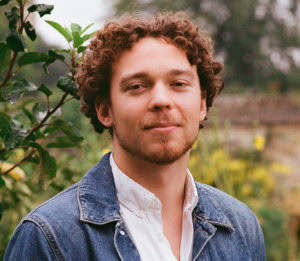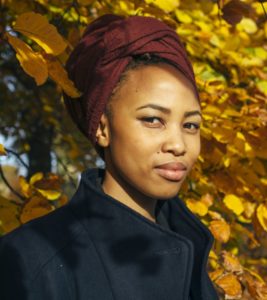Kellogg College Creative Writing Competition: read the winning entry
The inaugural Kellogg College Creative Writing Competition offered all students, Fellows, Research Members of Common Room, Common Room Members and staff of Kellogg College, the opportunity to showcase their creative writing skills.
Entrants were invited to submit an original piece of creative writing for the competition with the theme ‘Recovery’, which could be interpreted however they liked.
Over 20 submissions were received, and judges Dr Tara Stubbs, Dr Anna Beer and guest Judge, poet Edward Clarke, had a real task whittling them down to a shortlist of six.
In an online event on Wednesday 2 June, the six shortlisted writers were invited to read out their entries, after which the winner and two runners-up were announced. Judge Dr Anna Beer tweeted: “So enjoyed readings of the shortlist in the inaugural @KelloggOx Creative Writing competition – poised, poignant, witty, painful, moving. Congratulations not only those who won the prizes… but to all who took time to write about recovery.”

Winner Chris Barkley
Our congratulations to Chris Barkley (MSt Creative Writing), whose winning entry ‘A Guide to Recovery’ can be read below. Read more about Chris and his work on his website.

Thembe Mvula
Congratulations also go to Thembe Mvula (MSt Creative Writing), who was awarded second place for her poem ‘Bridges’ and Sylvia Alvares-Correa (DPhil History of Art), who received the third place prize for her piece of fiction writing ‘The Dream’.
A Guide to Recovery by Chris Barkley
Push up. This needn’t be done quickly, like in horror films. Instead, curl your fingers in the grass, feel the dew on your palms. Emerge inch by careful inch, nosing in the moss, remembering the smells, the sounds. Uncrust your eyes. Let the dirt fall away and watch the swaying yews for a while. You can use your headstone as a backrest.
Listen for a drumming woodpecker. The noise will stir you to action. Rise like a weary marionette and, as your vertebrae snicker back into place, stand for a full minute, letting your equilibrium adjust. Take this time to visualise your destination. This is something only you will know. But, for the sake of example, let’s say it’s the ruined paper mill where she kissed you for the first time.
Take a step. Be prepared for an overwhelming sense of dread. You will feel hungover in an existential way. Try your best to accept that feeling and realise it’s perfectly normal. If you can’t accept it, take a step anyway. It will help. Carry on; wander through the goosegrass and thistle, let the thorns snag at your bloodless legs. Remember where you’re headed.
If you see another like you (and they will all be like you) act civilly. Smile, because your teeth will still be there – don’t wave, because your hand may not. They will be just as confused. They may ask for help. If you can spare a minute, try to soothe them, but know you can only do so much. If they’re inconsolable, kiss them lightly on the head and lay them back down. Let them gaze at the sky’s dark hide, and the stars cast across it like runes of pale bone.
Find the riverbank. Tread alongside the water; drift, with the algae, downstream. Hear the pigeons gathering on the fence and see the jagged silhouette of the housing estate beyond. Remember it was here she called you small-minded for never trying baklava. Remember the conversation you had about silkworms, Chinese satellites, and reality TV. Remember how she illustrated everything with her hands. Watch out for tripping hazards. If a limb drops off, let it go. Don’t sulk.
As the river narrows and you see, in the distance, the ruined paper mill where she kissed you for the first time, notice the dread fade. Follow the water as it churns down a chalky stair and hear it laugh. If you can, laugh with it. Though, try not to think about breathing.
When you reach the paper mill and feel the torn cobbles under your mud-clad feet, slow. Stagger to the wall where you sat, she in her sundress, you in your jeans which made your bum look nice. Be mindful of the roots of the nearby willow, binding the ruin, cracking the time-worn stone. Sit on the wall. Smile. Remember the taste of baklava.
And, when you finally fall, try to land face up, so you can see the clouds passing, the moon shining, etcetera.